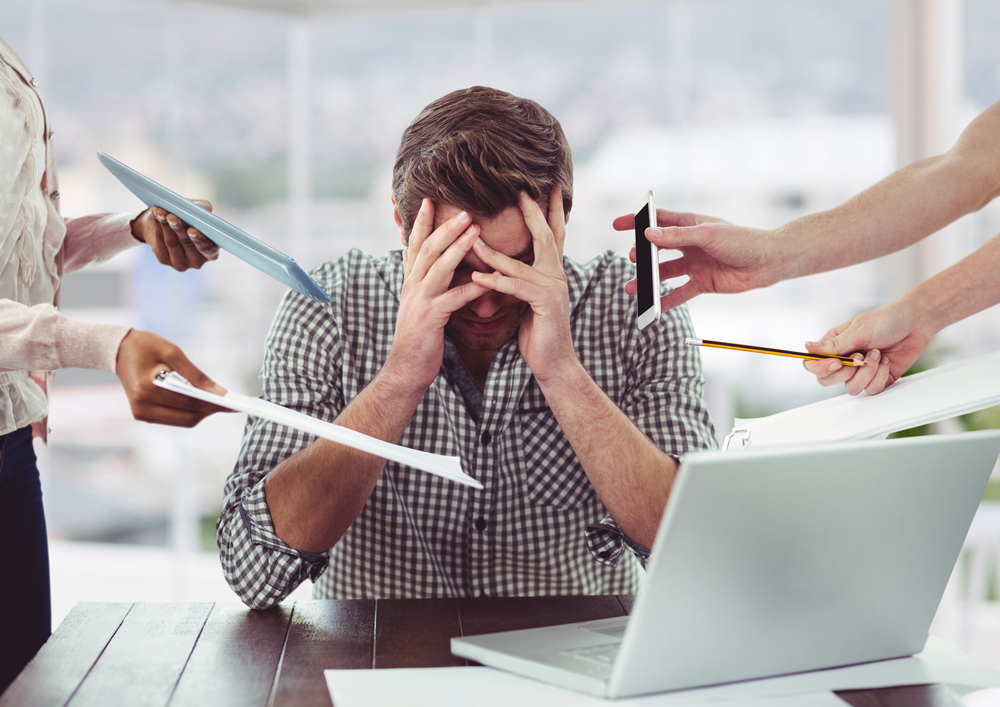Stress can leave you deflated, demotivated and exhausted.
Stress has a lot of negative effects on our bodies and mind. Working lots of overtime will also have a an added stress factor to the mix. It’s a combination that can get out of hand for many people. Stress causes us to become even more exhausted, ageing us, as well as impeding on our exercise performance. And yes, stress can actually cause early death!
We all want to achieve a level of success in our lives, and have to support our families as best as we can, but we do have to get a handle of this stress. It will get to a point where depression, anxiety and a multitude of health issues arise.
Poor sleep has a negative impact on performance in exercise training. This can put you at risk of injury. If you do choose to exercise in this state, recovery will be prolonged and inflammation in the body will increase. It does not make for a well meaning environment at all. In saying this, the type of exercise you do perform, can benefit during this period of your life. Perhaps think about low impact strategies, like yoga, walking, bike riding or even meditation.
The vicious cycle of sleep deprivation
Because of the mental and physical stress imposed on the body, due to lack of sleep, you may find it harder to actually get to sleep moving forward. This can become a vicious cycle that does not seem to end!
There are a few strategies I will share with you, that may help you during this time.
4 strategies that will help you during stressful, sleep deprived times
- Take a magnesium supplement. You can also buy a topical cream, and it’s great for sore muscles. Sleep deprivation can deplete your bodies stores of magnesium. Take magnesium 2–3 hours before bed, as it can take effect quite quickly. You don’t want to be operating a vehicle just after you take magnesium!
- Use caffeine to give you a boost. People respond differently to any given dose. Use about 5mg/kg for sleep deprivation, and 8mg/kg for performance enhancement. Caffeine will also allow you to get more out of your workout when tired. Therefore, it’s a good idea to drink a cup of black coffee before your session.
- Creatine. You may not have thought creatine would assist with sleep deprivation, but it surprisingly does! It’s the most effective nutrient to help overcome the effects of sleep deprivation, for optimal performance. It also lowers the stress hormone cortisol. It helps with precision, strength and power. Be sure to check the doses according to the supplement purchased.
- Meditation. Meditation calms the nervous system, increases your brain function and reduces stress. It also reduces inflammation and cortisol. The great thing about meditation is that you can find an app or even a downloadable clip to listen to on a daily basis. It will have a hugely profound effect on your daily moods, and clarity of throughs. Use it daily, morning and night for the best results.
As hard as it may be to exercise efficiently when you are under stress, it is still important to find some form of activity that you can do. Get outdoors, experience the sun on your skin, breath in fresh air, can and will increase your levels of happiness and wellbeing. Try to get back into the heavy lifting when the workload and stress become lighter. It’s very important to put yourself first, thinking about your own health now, and in the future.
